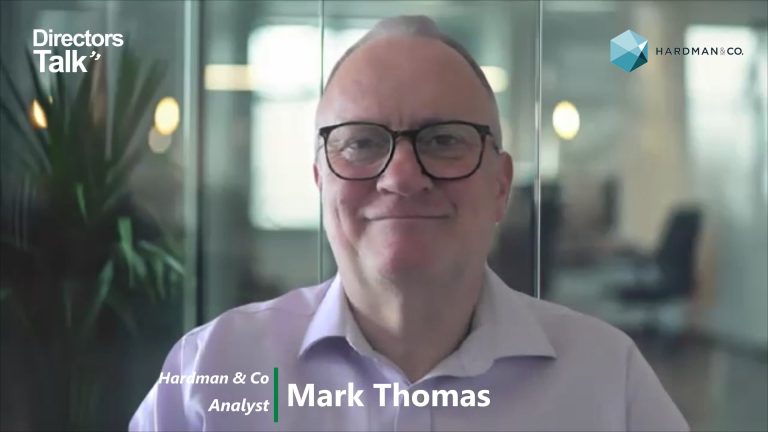Non-Standard Finance plc (LON:NSF) is the topic of conversation when Hardman and Co’s Analyst Mark Thomas caught up with DirectorsTalk for an exclusive interview.
Q1: You called your recent piece “sunshine after the rain”. What can you tell us about it?
A1: After an eventful 2019, 2020 (and beyond) is now all about operational delivery, the “boring” grinding out of profit in an attractive market from a franchise that has seen heavy investment over many years and after a number of distractions, most notably the aborted Provident Financial bid. John van Kuffeler Non-Standard Finance’s CEO said at the 16 January 2020 capital markets day “The focus for the next few years is on relatively modest investment and on driving return on assets towards our medium-term target of 20% for each division”.
We welcome this focus and think it will help deliver the 84% EPS growth (2021 on 2018) in current consensus estimates. The accompanying trading statement that day indicated 2019 results would be in line with market expectations and the shares rose strongly.
Q2: So, what makes you think NSF is operating in an attractive market?
A2: We believe a significant opportunity exists to deliver attractive and sustainable long-term returns as:
i) the non-standard customer in the UK remains underserved;
ii) overall market competitive pressure is declining (in particular from payday lending and rent-to-own that have been the subject of a regulatory crackdown);
iii) a potential recession-induced tightening of credit by mainstream lenders can be expected to increase NSF customer volumes;
iv) there is expected to be a consolidation of/exit by smaller operators (potentially regulatory and financing driven); and
v) there is an increase in awareness of certain product segments (including guarantor loans).
Key risks include:
i) regulation, although this now appears to be approaching a more steady-state position rather than any dramatic increase in risk;
ii) inability to access funding (details on new securitisation expected to be announced shortly); or
iii) competition which, if anything, appears to be reducing. The bias of upside to downside appears heavily geared to upside.
Q3: And what about NSF in that market?
A3: It is important to consider each of the divisions as there are different opportunities and risks in each. In the branch business, Everyday Loans, opportunities include: i) splitting branches to generate additional capacity with rapid payback; ii) expanding towards 100 branches over the medium term (potentially up to 120 branches over the long term); and iii) operational efficiencies from process improvements ‒ management is targeting a 5% increase in the current year. In guarantor loans, there should be significant efficiencies from: i) the move to one location (having consolidated all activities at Trowbridge); ii) expanding operations and staff into new additional space in Trowbridge; and iii) further market expansion and share gains as competitors slow their pace of growth. In home collect, management will: i) continue to shorten the loan book; ii) roll out the customer portal and card payments on the doorstep; and iii) aim to make market share gains from competitors. The central/head office has already reduced operational costs and the new securitisation facility should reduce funding costs (although we do not yet know the quantum of this). We do not view these opportunities as new, they have been discussed several times before. Having significantly built the franchise and infrastructure, the key issue from here is delivering them and that is clearly the management focus.
Q4: You touched on lower funding costs. What is happening there?
A4: For some time, Non-Standard Finance has indicated a desire to diversify and cheapen its funding while still maintaining long-term commitments. We understand a new £150m-£200m facility has been agreed and the lenders have done the due diligence so a final announcement of terms is due, hopefully in the near future, and once the legal process is completed. We understand that there may be a “meaningful” reduction in funding costs compared with existing facilities and a six-year term. The current £285m term loan runs until 2023. Management resisted requests to provide any guidance on what the quantum of such a reduction might be until the deal is signed and it is probably not in consensus estimates yet. There is clearly an “opportunity” to repay some of the existing and more expensive facilities. The extent of any refinancing will be determined by the group at the time and will be considered in the context of wanting to ensure that the group has diversified and not concentrated funding, that there are no maturity cliff edges, as well as the need to fund future growth (our estimates £50m-£60m p.a.). As a final point, we understand the term loan can be repaid without penalty at this stage.









































